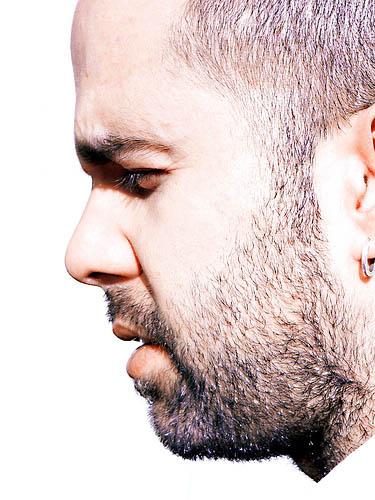A sleeping man holds in a circle around him the sequence of the hours, the order of the years and worlds. He consults them instinctively as he wakes and reads in a second the point on the earth he occupies, the time that has elapsed before his waking; but their ranks can be mixed up, broken. If toward morning, after a bout of insomnia, sleep overcomes him as he is reading, in a position quite different from the one in which he usually sleeps, his raised arm alone is enough to stop the sun and make it retreat, and, in the first minute of his waking, he will no longer know what time it is, he will think he has only just gone to bed. If he dozes off in a position still more displaced and divergent, after dinner sitting in an armchair for instance, then the confusion among the disordered worlds will be complete, the magic armchair will send him traveling at top speed through time and space, and, at the moment of opening his eyelids, he will believe he went to bed several months earlier in another country. But it was enough if, in my own bed, my sleep was deep and allowed my mind to relax entirely; then it would let go of the map of the place where I had fallen asleep, and, when I woke in the middle of the night, since I did not know where I was, I did not even understand in the first moment who I was; I had only, in its original simplicity, the sense of existence as it may quiver in the depths of an animal; I was more destitute than a cave dweller; but then the memory — not yet of the place where I was, but of several of those where I had lived and where I might have been — would come to me like help from on high to pull me out of the void from which I could not have got out on my own; I crossed centuries of civilization in one second, and the image confusedly glimpsed of oil lamps, then of wing-collar shirts, gradually recomposed my self's original features.
Proust, Marcel. Swann's Way. Trans. Lydia Davis. 2004. 5-6.
Thursday, November 01, 2007
falling asleep with a book
For a long time I went to bed early. Sometimes, my candle scarcely out, my eyes would close so quickly that I did not have time to say to myself: "I'm falling asleep". And, half an hour later, the thought that it was time to try to sleep would wake me; I wanted to put down the book I thought I still had in my hands and blow out my light; I had not ceased while sleeping to form reflections on what I had just read, but these reflections had taken a rather peculiar turn; it seemed to me that I myself was what the book was talking about; a church, a quartet, the rivalry between François I and Charles V. This belief lived on for a few seconds after my waking; it did not shock my reason but lay heavy like scales on my eyes and kept them from realizing that the candlestick was no longer lit. Then it began to grow unintelligible to me, as after metempsychosis do the thoughts of an earlier existence; the subject of the book detached itself from me, I was free to apply myself to it or not; immediately I recovered my sight and I was amazed to find a darkness around me soft and restful for my eyes, but perhaps even more so for my mind, to which it appeared a thing without cause, incomprehensible, a thing truly dark. I would ask myself what time it might be; I could hear the whistling of the trains which, remote or nearby, like the singing of a bird in a forest, plotting the distances, described to me the extent of the deserted countryside where the traveler hastens toward the nearest station; and the little road he is following will be engraved on his memory by the excitement he owes to new places, to unaccustomed activities, to the recent conversations and the farewells under the unfamiliar lamp that follow him still through the silence of the night, to the imminent sweetness of his return.
Proust, Marcel. Swann's Way. Trans. Lydia Davis. 2004. 3-4.
Proust, Marcel. Swann's Way. Trans. Lydia Davis. 2004. 3-4.
Subscribe to:
Posts (Atom)
